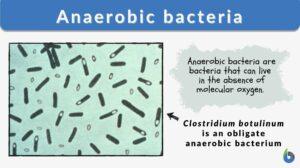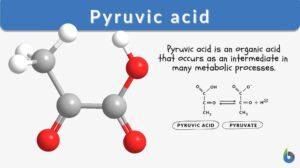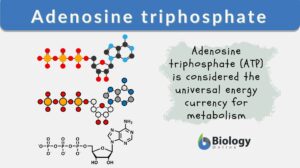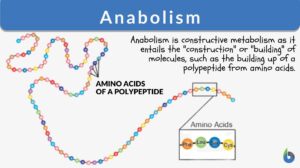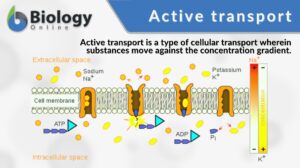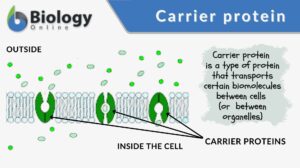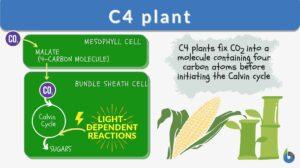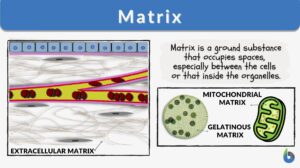Search Results for: nadh
Krebs cycle
Krebs cycle, also known as the citric acid cycle or tricarboxylic acid (TCA) cycle, is a fundamental metabolic pathway that... Read More
Glycolysis
What is Glycolysis and Why is it Important? Glycolysis is a metabolic pathway by which the 6-carbon molecule of glucose is... Read More
Cellular respiration
Cellular Respiration Definition What is cellular respiration in simple terms? Cellular respiration can be defined simply as... Read More
Fermentation
Fermentation Definition What is fermentation? Fermentation is the breaking down of sugar molecules into simpler compounds... Read More
Catabolism
Catabolism Definition Catabolism is the branch of the metabolic process that breaks down complex, big molecules into... Read More
Anaerobic bacteria
Bacteria are classified according to the need for oxygen to survive and grow. For example, aerobic bacteria are bacteria... Read More
Embden-Meyerhof-Parnas pathway
Definition noun A glycolytic pathway whereby glucose is metabolized and converted ultimately to pyruvate, and results in a... Read More
Pyruvic acid
What is Pyruvic Acid? Pyruvic acid is an organic acid that occurs as an intermediate in many metabolic processes. It occurs... Read More
Plant Metabolism
Introduction Plants are responsible for incredible feats of molecular transformation. The processes are always being... Read More
Anaerobic respiration
Anaerobic Respiration Definition What is anaerobic respiration? Anaerobic (cellular) respiration is a respiratory process... Read More
Adenosine triphosphate
Adenosine Triphosphate Definition noun plural: adenosine triphosphates (biochemistry) An organic compound that is... Read More
Carbohydrate
Carbohydrate Definition A biomolecule refers to any molecule that is produced by living organisms. As such, most of them... Read More
Nicotinamide adenine dinucleotide
Definition noun An ubiquitous coenzyme comprised of two nucleotides (i.e. one with adenine base and the other a... Read More
Aerobic bacteria
Aerobic Bacteria Definition What does aerobic mean in biology? As the name suggests, 'aerobe' in biology means organisms... Read More
Redox reaction
Redox Reaction Definition What are redox reactions? This is a common term in chemistry and biology. In chemistry, a redox... Read More
Mitochondrion
Mitochondrion Definition What are mitochondria? The term “mitochondrion” comes from the two words of the Greek... Read More
Citric Acid Cycle
Definition noun (1) A cycle of reactions catalyzed by enzymes in which pyruvate derived from nutrients and converted to... Read More
Light-dependent reaction
Many organisms, such as green plants, convert light energy into chemical energy through the mechanism of photosynthesis. In... Read More
Active transport
Active transport is a type of cellular transport in which substances (e.g. ions, glucose, and amino acids) are transported... Read More
Malic acid
Definition noun A dicarboxylic acid produced by a living organism, with a chemical formula: C4H6O5 Supplement Malic acid is... Read More
Carrier protein
Carrier protein is a type of cell membrane protein involved in facilitated diffusion and active transport of substances out... Read More
Mitochondrial DNA
Mitochondrial DNA Definition noun plural: mitochondrial DNAs The genetic material in the mitochondrion that carries code... Read More
Flavin mononucleotide
Definition noun plural: flavin mononucleotides fla·vin mon·o·nu·cle·o·tide, ˌmɒnəʊˈnjuːklɪəˌtaɪd A... Read More
Messenger ribonucleic acid
Definition noun plural: messenger ribonucleic acids mes•sen•ger ri•bo•nu•cle•ic ac•id, ˈmɛ.sɪn.dʒəɹ... Read More
Dinucleotide
Definition noun plural: dinucleotides di·nu·cle·o·tide, daɪ njuːklɪəˌtaɪd An organic compound comprised of two... Read More
Phosphorylation
Phosphorylation Definition We can define phosphorylation as a biochemical process in which a phosphate molecule is added to... Read More
Mononucleotide
Definition noun plural: mononucleotides mon·o·nu·cle·o·tide, ˌmɒnəʊˈnjuːklɪəˌtaɪd A single nucleotide (as... Read More





